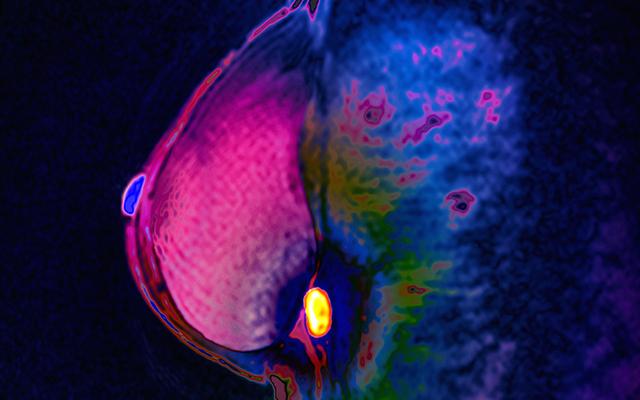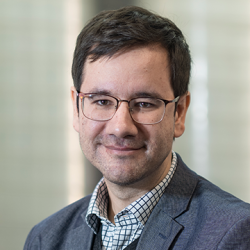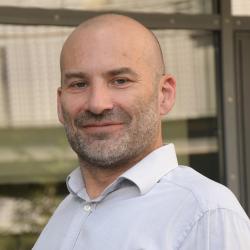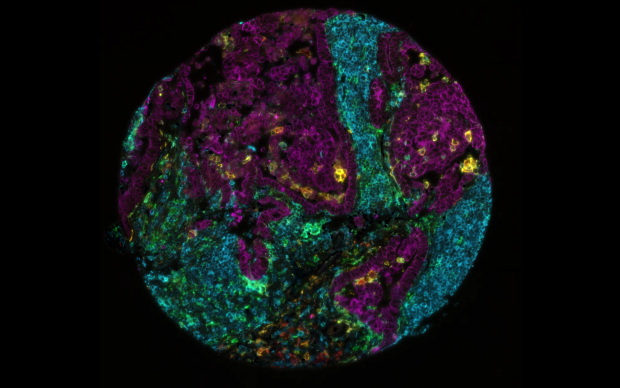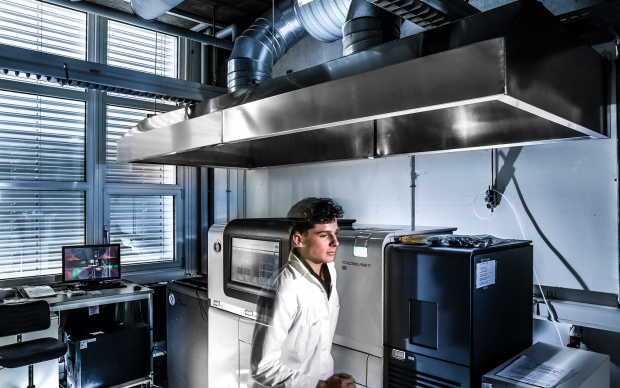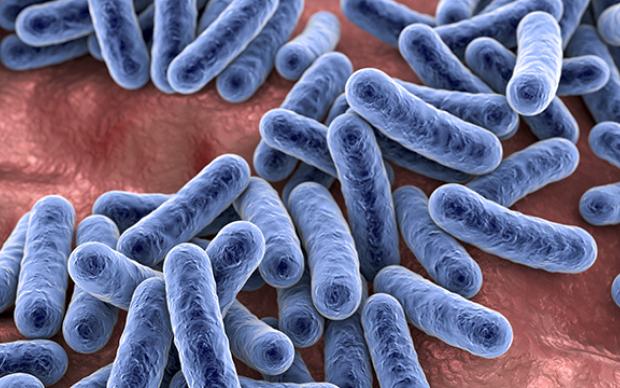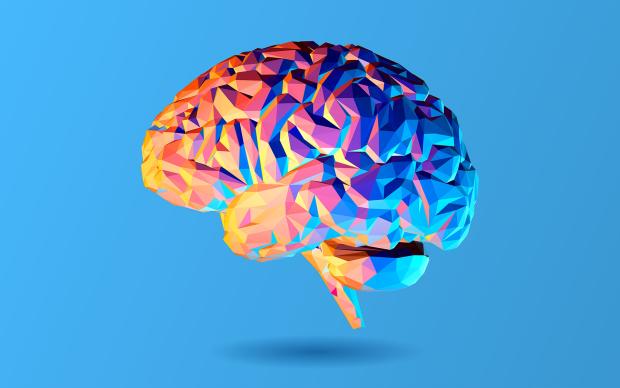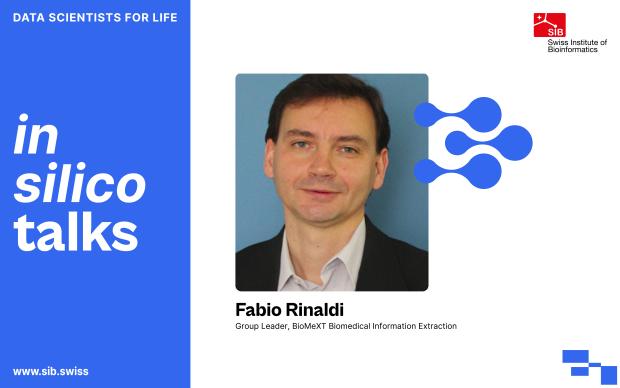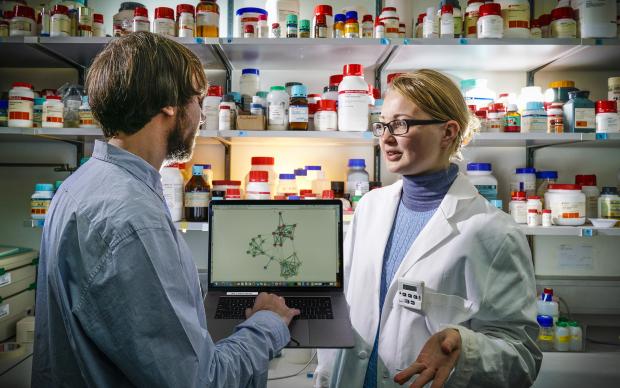The UNCAN platform will give researchers secure access to a large pool of curated and harmonized cancer data, accelerating the discovery of urgently needed new therapeutic approaches. SIB leads work to ensure data within this federated platform are interoperable and high-quality, including through new AI tools for data harmonization. Built by the joint EU/Swiss public-private partnership UNCAN-Connect, the platform will help deliver the EU Cancer Mission, support the European Health Data Space, and advance Switzerland’s Health2030 strategy.
A new era of trustworthy transnational data sharing
The EU Cancer Mission aims to improve cancer prevention, detection and treatment by 2030, by uniting research, innovation and public health policies in ways that cannot be achieved through isolated studies and actions at national, regional or local levels.
The UNCAN platform is the mission’s data backbone. Beyond being a breakthrough in research infrastructure in itself, its development will generate knowledge and expertise aligning with the European Health Data Space – a new regulation for the secure use and exchange of all electronic health data across the EU.
UNCAN-Connect brings together 53 research institutions, companies, and patient organizations from 19 countries to build the platform, following a blueprint developed in a previous EU project called 4.UNCAN.eu. SIB is also a partner in the complementary CANDLE (National CAncer data Node DeveLopErs) EU project, which will support implementation of the UNCAN platform. CANDLE launched in June and unites 40 partners from 20 European countries.
Building the next generation of health data infrastructure
Over the past 175 years, each breakthrough in cancer treatment has followed a breakthrough in science and technology. Radiation therapy emerged soon after the discovery of X-rays; chemotherapy after the development of chemical synthesis; and most recently, immunotherapy after progress in genetic engineering. While these transformative therapies have saved countless lives, cancer still causes one in four deaths in Europe – and, without further innovation, is projected to become the leading cause of death and illness in the region by 2035.
A new era of trustworthy transnational data sharing
The EU Cancer Mission aims to improve cancer prevention, detection and treatment by 2030, by uniting research, innovation and public health policies in ways that cannot be achieved through isolated studies and actions at national, regional or local levels.
The UNCAN platform is the mission’s data backbone. Beyond being a breakthrough in research infrastructure in itself, its development will generate knowledge and expertise aligning with the European Health Data Space – a new regulation for the secure use and exchange of all electronic health data across the EU.
UNCAN-Connect brings together 53 research institutions, companies, and patient organizations from 19 countries to build the platform, following a blueprint developed in a previous EU project called 4.UNCAN.eu. SIB is also a partner in the complementary CANDLE (National CAncer data Node DeveLopErs) EU project, which will support implementation of the UNCAN platform. CANDLE launched in June and unites 40 partners from 20 European countries.
The UNCAN (UNderstand CANcer) platform aims to accelerate this next breakthrough by harnessing two recent revolutions – the generation of vast amounts of life science data and the development of powerful AI models. The federated platform will overcome technical and governance barriers to connect and catalogue diverse cancer data across the European Union, Switzerland, Turkey, and Ukraine, which scientists, clinicians, AI developers and other health innovators can easily find and pool to uncover new insights into cancer biology and develop new therapies.
SIB is a partner in the EU- and Swiss-funded consortium building the platform, called UNCAN-Connect. Our scientists lead work to ensure that clinical and other data deposited in the platform are high-quality and harmonized, including through cutting-edge AI tools for aligning data to common standards. These contributions, as well as those to the related CANDLE project (see box), build on experience in coordinating other innovative health-related data initiatives, including the Swiss node of the Federated European Genome-phenome Archive (FEGA), the European IMMUcan patient data atlas, and the Swiss Personalized Health Network (SPHN).
The UNCAN-Connect project will help put the EU Cancer Mission into practise – and inform an even larger health data initiative, the European Health Data Space (EHDS) adopted this year (see box). It also supports Swiss health initiatives such as the Health2030 strategy, and contributes to SIB’s mission to harness in-depth knowledge of biological data, cutting-edge technologies, and interdisciplinary collaborations to accelerate medical and health innovation.
Harmonizing and quality-controlling cancer data across Europe
The UNCAN-Connect project will provide use cases on six major cancer types: paediatric, lymphatic, pancreatic, ovarian, lung and prostate. The data will come from hospitals, registries, universities, biobanks across partner countries, and connect with existing research European infrastructures such as ELIXIR, of which SIB is the Swiss node. A wide range of patient and tumour information will be deposited, including demographic, clinical and quality-of-life data; genetic and molecular markers from genomics, proteomics and other ‘omics’ analyses; and images of tumors and organs.
To fuel new discoveries, including through AI, these data must all be of consistent high quality, use the same units and descriptions, and have the same structure to enable reliable and reproducible research.SIB scientists will guide and coordinate project partners to meet these fundamental requirements, through the development of guidelines and tools that ensure:
- fully interoperable data, through standards for data formatting, processing and annotation that follow FAIR (Findable, Accessible, Interoperable and Reusable) principles and international guidelines, and aligned with the European Health Data Space (EHDS) and the EU General Data Protection Regulation (GDPR);
- data integrity and traceability, through a formal deposition pipeline and provenance standards;
- data quality, through a dedicated assessment tool.
Developing innovative AI tools for data harmonization
To facilitate the implementation of these guidelines, our scientists will also develop AI-tools that help clinicians and researchers map terms used in their datasets to the common standards.
Reference(s)
Image credit: Keystone – Science photo library - Zephyr


